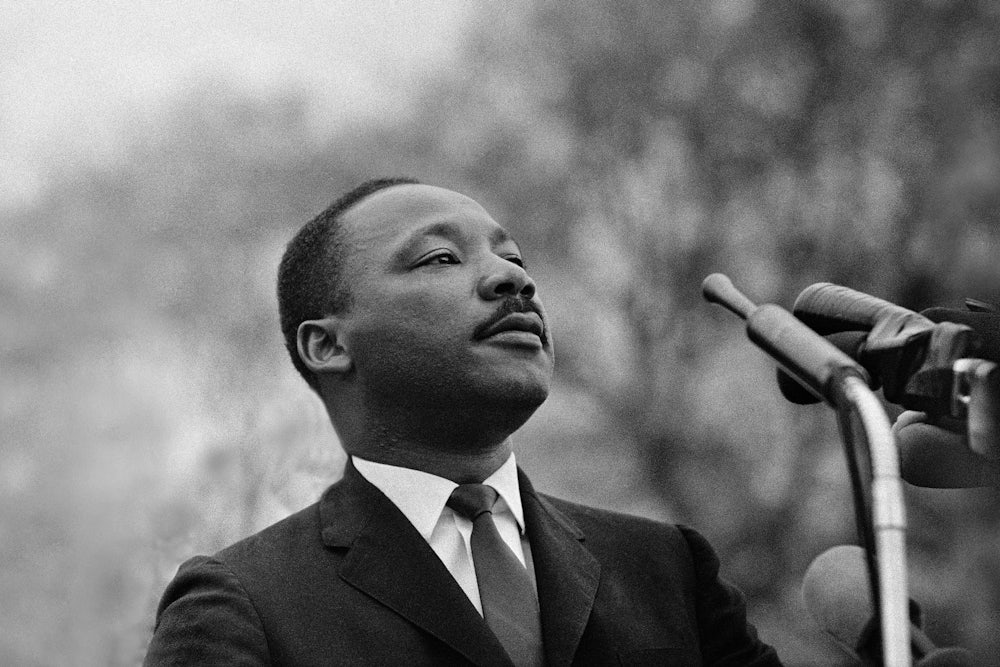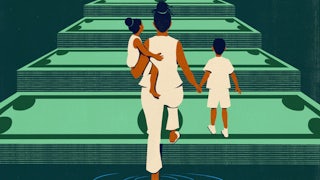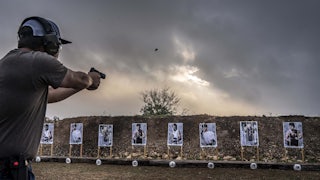In his 1967 book Where Do We Go From Here? Martin Luther King Jr. issued a visionary call often written out of our remembrances of his calls for change. “The solution to poverty,” King wrote, “is to abolish it directly by a now widely discussed measure: the guaranteed income.”
Now, over 50 years later, King’s long-overlooked call for a guaranteed income, where families receive regular cash infusions alongside their wages, is being not only heard but also put into practice. Communities around the country are demonstrating his proposal; 100 guaranteed income pilot projects have been launched in just the last five years. The people launching these demonstration projects are realizing King’s vision, which is also the vision of policy powerhouse Johnnie Tillmon who, alongside her collaborators at the National Welfare Rights Organization, long nudged King to rally for a guaranteed income.
This burst of guaranteed income pilots in the twenty-first century started in Stockton, California, and Jackson, Mississippi, with the Stockton Economic Empowerment Demonstration championed by Mayor Michael Tubbs and the Magnolia Mother’s Trust led by Dr. Aisha Nyandoro, both supported by my organization, the Economic Security Project. Both of these pilots open-sourced their playbooks and invited other community leaders to take up the charge. Hundreds have answered.
One of these pilots is in the neighborhood where King was born and preached, the Old Fourth Ward of Atlanta, and it’s been powerful to witness its work nearly every step of the way. I spent years living in Atlanta before moving to California, where I would eventually co-found the Economic Security Project. So when I got a Facebook message from Amir Farokhi, an Atlanta City Council member eager to bring guaranteed income to Atlanta, we got to work and launched a task force to assess what a guaranteed income could mean for the city. As we dove in, it made me appreciate even more the organizing prowess of King and his generation who were able to launch and maintain the Montgomery Bus Boycott without the internet!
All 100 of these pilots are built upon a persuasive body of evidence showing that a guaranteed income is a powerful tool for people to invest in themselves and their families. Each of these pilots underscores how direct cash support makes people’s lives better. From the streets of Stockton to rural Alabama, guaranteed income improves work outcomes, food security, and housing, and makes possible all sorts of things that can’t be tracked by the data. There isn’t a graph that will accurately capture what it means when a father is able to take a Sunday off for the first time in years and, upon bringing his family to the pool, learns—to his astonishment—that his kids know how to swim. In city after city, these programs bring King’s vision for economic justice to life and show that a guaranteed income can help people meet their basic needs and enable so much more.
A guaranteed income succeeds, in part, for three reasons: simplicity, flexibility, and dignity. The pilot project in King’s neighborhood, the Old Fourth Ward in Atlanta, is a good example. Called In Her Hands and led by Hope Wollensack, the project provides $850 per month to 650 recipients—in this case, Black women in Georgia’s urban, rural, and suburban communities who are experiencing poverty. There are no strings attached to the cash. Instead of prohibiting certain purchases or forcing participants to fill out reams of paperwork to justify their spending—constraints that can discourage recipients and limit the effectiveness of payments—the In Her Hands project allows people to decide for themselves what their most pressing needs are and where the money should be spent. Sometimes that’s on textbooks, extra groceries, getting a cavity filled, or making sure their kid has the money to register for the local soccer team. Having those needs taken care of also means that the folks now have more time and resources to be better neighbors and community members. They also have the freedom to simply take a day off.
In Her Hands, in particular, was designed with attention to the real needs of the participants rather than the anxieties of policymakers. The focus on Black women was very much modeled on Nyandoro’s pioneering work in Jackson, and all of the participating women were closely consulted on the program’s details. The money arrives on a schedule and for a duration that they helped to determine. And again, the women participating can use the money however they see fit. One participant in the Jackson program wrote, “My goal for the rest of the year [while] I have these payments coming in is to work on transitioning into a job that provides more of a career and better pay than what I currently do.” Another said that she intends to use the money to help friends who need a roof over their heads—a reminder that cash supports broader communities, not just individuals or their families.
These are not just nice outcomes. They are a solution to a problem of incredible urgency. Thirty-two percent of people in this country don’t have enough cash, or its equivalent, to cover a $400 emergency. The need is even sharper among Black women, which is why In Her Hands focuses on them. Black women in Georgia earn only 59 cents for every dollar earned by white men in the state. Although Black women work at higher percentages than white women, they tend to be channeled to lower-paying, less secure jobs. Johnnie Tillmon’s words from over 50 years ago still ring true, “The truth is a job doesn’t necessarily mean an adequate income. There are some 10 million jobs that now pay less than the minimum wage, and if you’re a (Black) woman, you’ve got the best chance of getting one.” Systemic discrimination and historic inequities contribute to this economic precariousness. So it comes as no surprise that in Atlanta’s Old Fourth Ward, 38 percent of Black women live below the poverty line, compared to 26 percent of Black men and 8 percent of white women.
While most efforts at providing a guaranteed income occur in smaller regional experiments, Congress has tested the waters. Pandemic-era cash payments were effectively a large-scale demonstration of guaranteed income, and they proved incredibly effective. Survey after survey found that stimulus checks were among the most popular things the federal government has done since landing humans on the moon. And in 2021, Congress and the Biden administration kicked off a more targeted nationwide temporary guaranteed income with the expansion of the Child Tax Credit, which effectively provided a guaranteed income to families with children. For the first time, the credit was fully refundable—meaning that families with lower income who don’t usually receive the full benefit of the tax credit were eligible. It funneled much-needed money directly to Americans’ bank accounts.
For six months, nearly every American family with children under 18 received direct payments of up to $300 per month per child. These payments had astonishing results—they lifted millions of kids out of poverty almost immediately, by extending access to the credit to nearly half of the Black and Latino kids who had been (and are again) excluded from the full credit. On top of this, “CTC-eligible households were 1.3 times more likely to start learning new professional skills than ineligible households,” highlighting once again how permanent cash support could provide a pathway forward for improved employment opportunities. The fact that Congress was not able to extend the program permanently, in light of those results, is tragic, but it’s expected that it’ll try again.
A couple of years ago, Dr. Bernice King, CEO of the King Center and daughter of Martin Luther King, said on a virtual TED stage, “My heart is a little heavy right now because I was 5 years old when my father was assassinated, and he did change the world. But the tragedy is that we didn’t hear what he was saying to us as a prophet to this nation, and his words are now reverberating back to us.” I understand her sadness, but I also feel some hope. These 100 guaranteed income pilot projects suggest that we might just be starting to listen. For the Black women in Georgia participating in In Her Hands, that will mean having the economic stability that has long been denied to them. They will enjoy peace of mind, the freedom to be better caretakers for their families and communities, and the wherewithal to invest in themselves and their futures.


